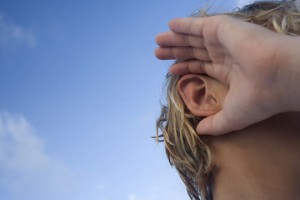 One way that empathy is built in a person is by more awareness of oneself. The better you understand yourself and your emotions, the better you will be able to appreciate and relate to the feelings of others. An important step in developing empathy is learning to listen with empathy. Listening is not just hearing. Rather listening with empathy requires that the way we filter the message may need to be ‘turned off’ while we work on understanding how others feel.
One way that empathy is built in a person is by more awareness of oneself. The better you understand yourself and your emotions, the better you will be able to appreciate and relate to the feelings of others. An important step in developing empathy is learning to listen with empathy. Listening is not just hearing. Rather listening with empathy requires that the way we filter the message may need to be ‘turned off’ while we work on understanding how others feel.
There are five ways that we filter messages that influence what we hear.
- The right / wrong filter. If while we are listening to the other person while at the same time thinking about how we can justify our position – we cannot be listening with empathy or trying to understand how they feel.
- The loved / not loved filter. We will miss the point of all communication if we are trying to figure out if the person talking still likes us or if they are going to abandon our relationship. This can happen with adults and children.
 The criticism / put down filter. If the complaint we hear is interpreted as a criticism of ourselves or that we are not living up to their standards we will not be able to hear what may be a legitimate feeling on the part of the other person.
The criticism / put down filter. If the complaint we hear is interpreted as a criticism of ourselves or that we are not living up to their standards we will not be able to hear what may be a legitimate feeling on the part of the other person.- What am I going to say next filter. Listening with our answer running in our head or preparing to have a better story, or to promote our own self interest is not understanding the other person. This may be one of the most common filters and one that does not promote understanding or empathy.
- Get to the point filter. If you have ever spoken to someone and their stories seem to be never ending you may have listened with the “get to the point’ filter. However you may miss some key points that would help you understand how the other person experienced the story they are telling, thereby missing the opportunity to better understand them. Persons using this filter are oftentimes impatient.
Why is all of this important? Because being able to listen with empathy is part of being able to manage anger and to reduce the possibility that we may be displaying bullying behavior. Developing peaceful relationships begins with good empathic listening skills.
